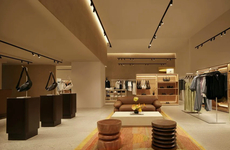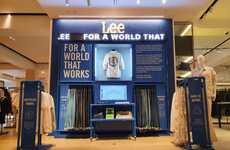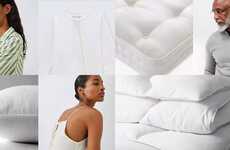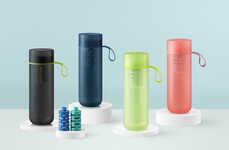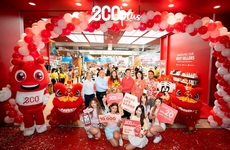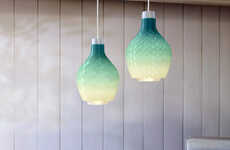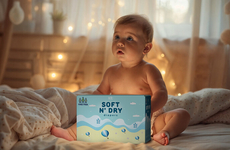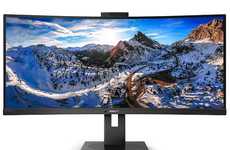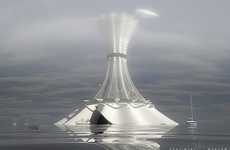
Philips Design Circle of Life Teaches Us About the Three Rs
Alex Scott — February 24, 2010 — Eco
References: design.philips & yankodesign
Here's another nifty innovation from a company that's known for engineering earth-friendly products. The Philips Design Circle of Life is basically an environmentally conscious shopping experience.
What Phillips seems to be trying to do is create informed customer decisions by giving the consumer information on product life, recycling methods of said product and answers to specific client needs.
If the Philips Design Circle of Life ends up being developed, it will immensely help to cut down product waste and obsolescence, and slow down the cycle of buying and discarding products that is all too quick right now.
What Phillips seems to be trying to do is create informed customer decisions by giving the consumer information on product life, recycling methods of said product and answers to specific client needs.
If the Philips Design Circle of Life ends up being developed, it will immensely help to cut down product waste and obsolescence, and slow down the cycle of buying and discarding products that is all too quick right now.
Trend Themes
1. Sustainable Retail - The trend towards sustainable retail experiences is driven by the need to reduce product waste and obsolescence, offering opportunities for businesses to create informed customer decisions and promote eco-friendly products.
2. Circular Economy - The circular economy trend encourages businesses to consider product life, recycling methods, and specific client needs, creating opportunities to slow down the cycle of buying and discarding products and promote a more sustainable approach.
3. Consumer Education - The trend of consumer education focuses on providing information to customers about product life and recycling methods, empowering them to make more informed and environmentally conscious purchasing decisions.
Industry Implications
1. Consumer Electronics - The consumer electronics industry can leverage sustainable retail experiences and circular economy approaches to reduce product waste and obsolescence, and create more environmentally friendly products.
2. Fashion and Apparel - The fashion and apparel industry can adopt the principles of sustainable retail experiences and circular economy to promote sustainable fashion, reduce textile waste, and encourage recycling and upcycling of garments.
3. Home and Décor - The home and décor industry can benefit from sustainable retail experiences by providing information on product life, recycling methods, and eco-friendly options, inspiring customers to make more sustainable choices for their homes.
4.1
Score
Popularity
Activity
Freshness

